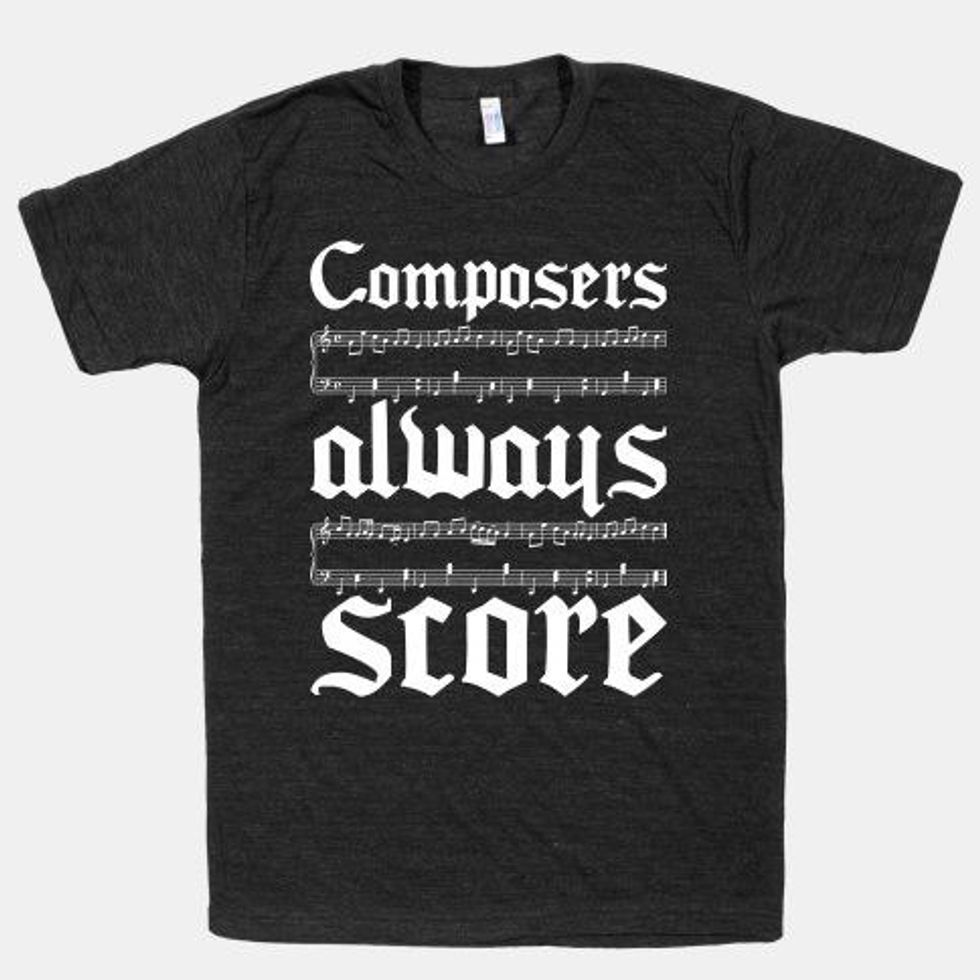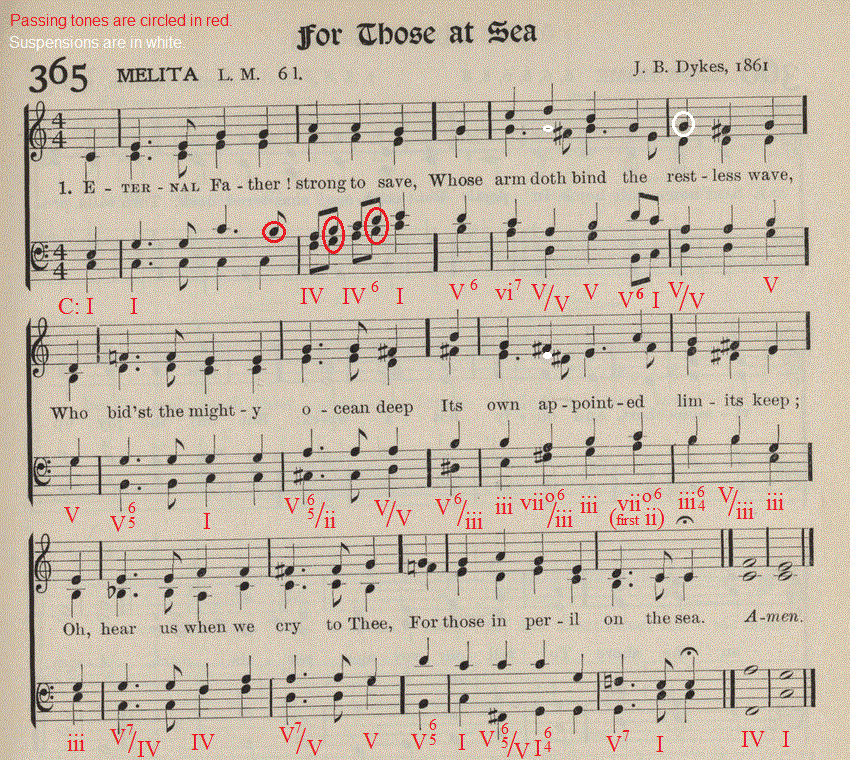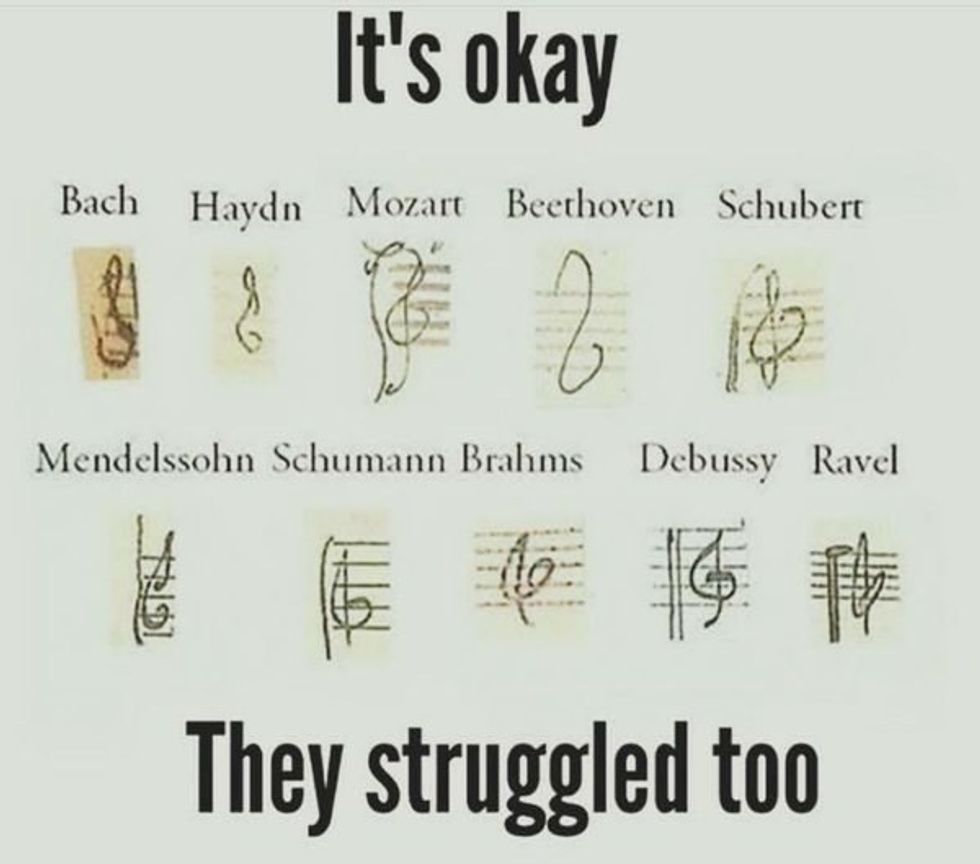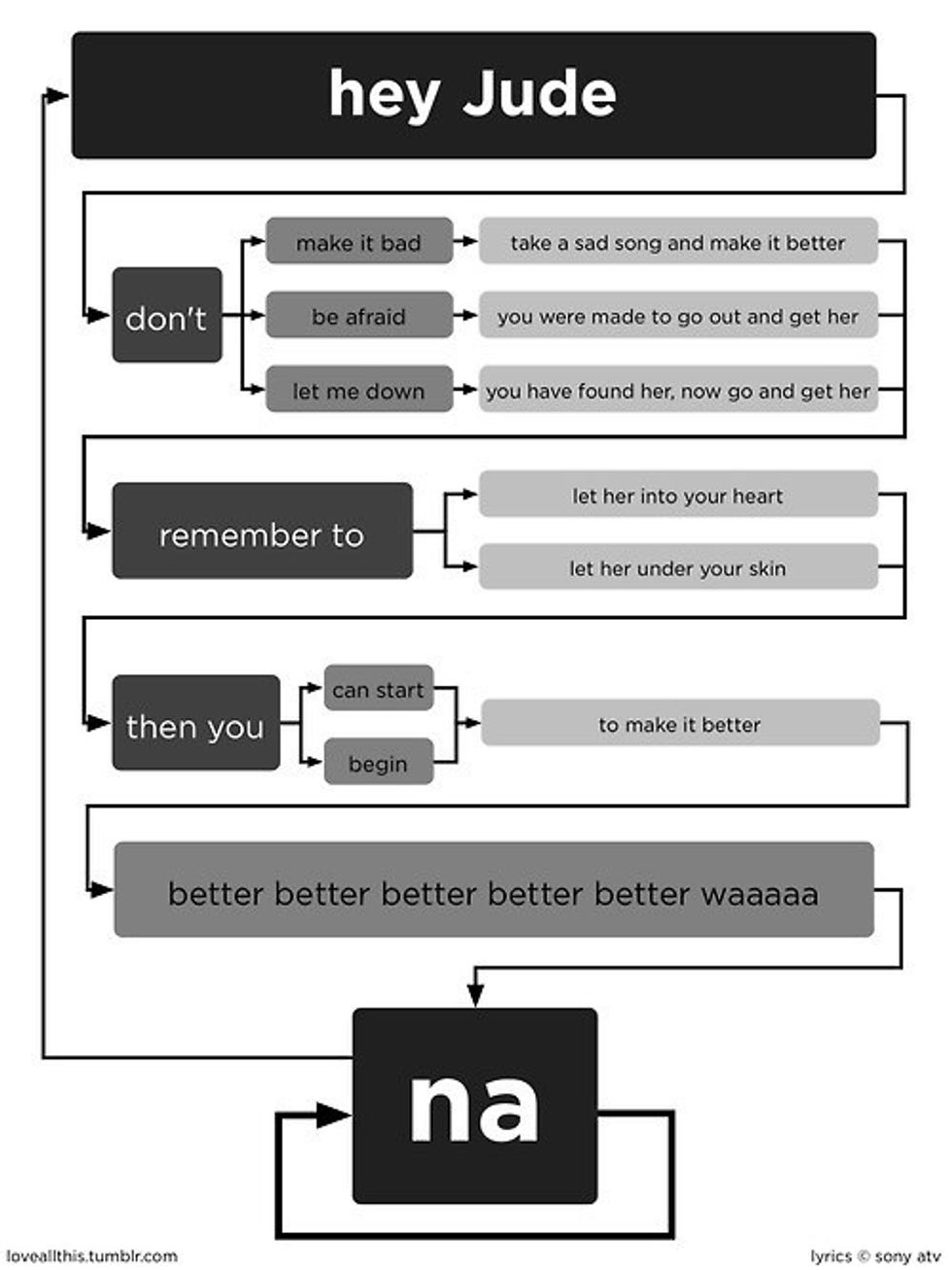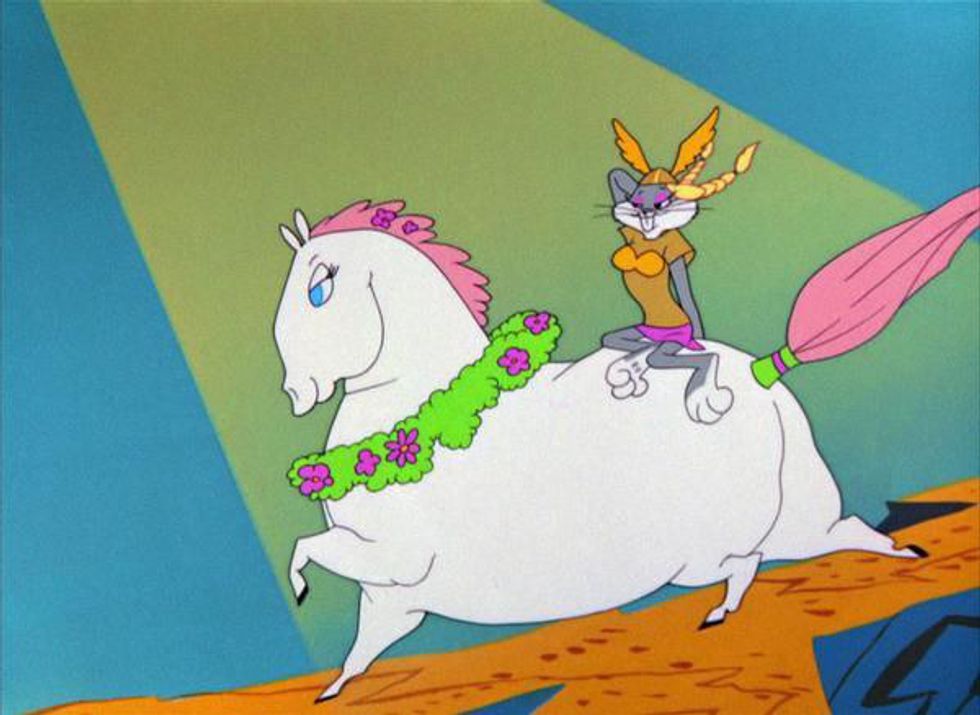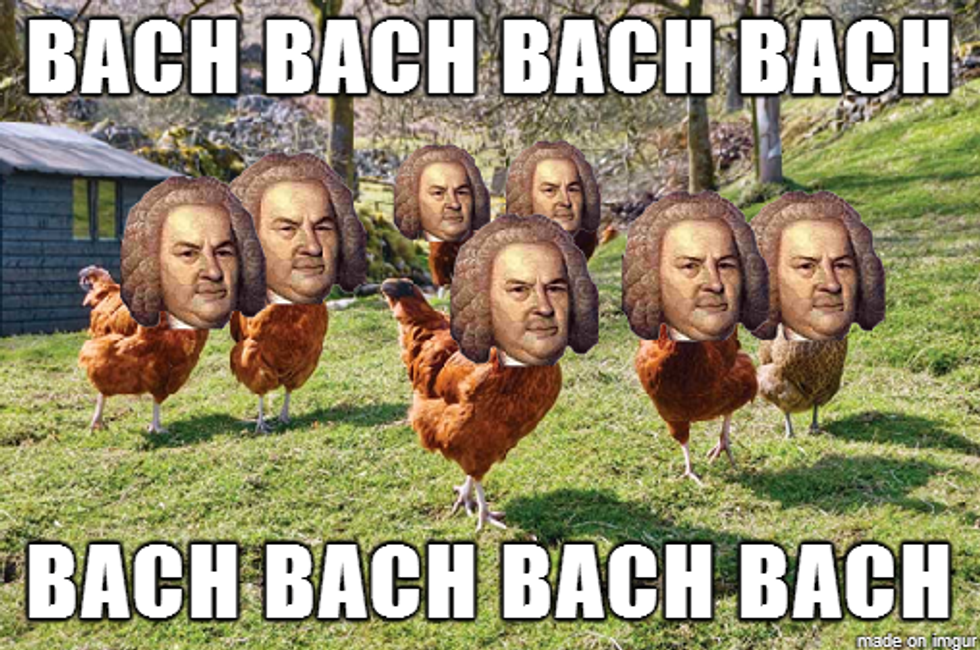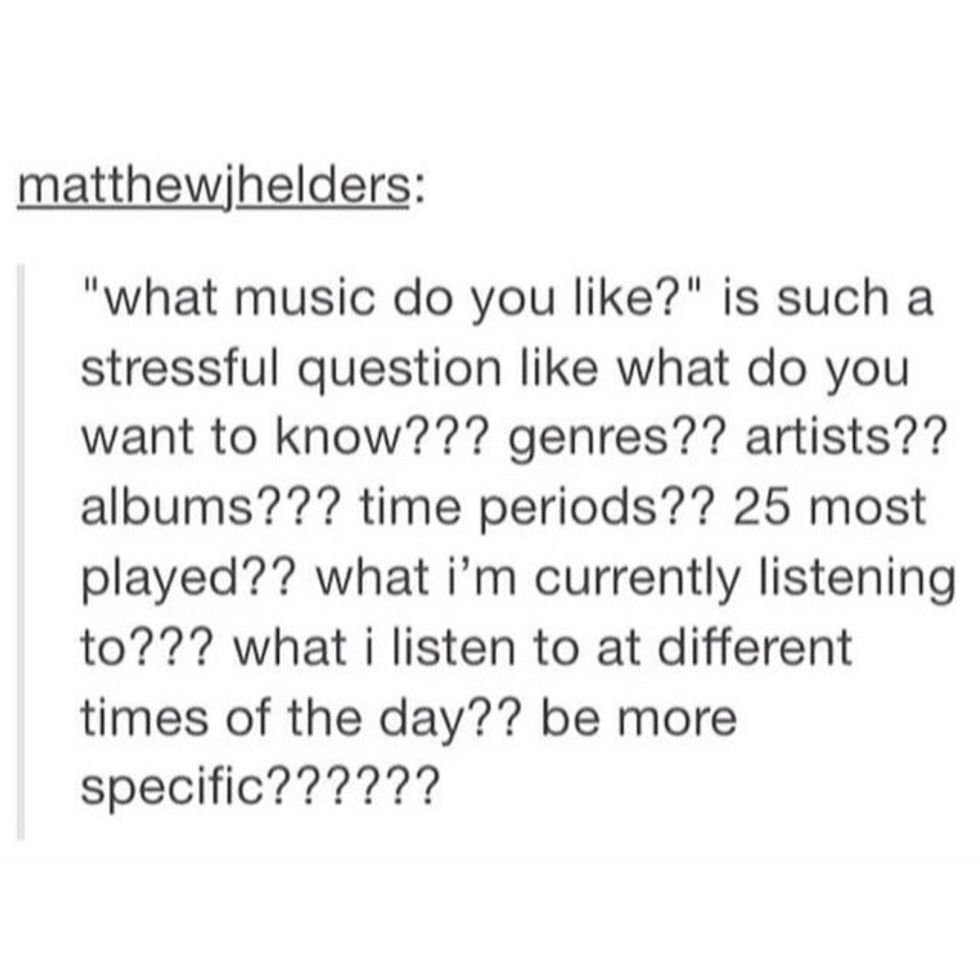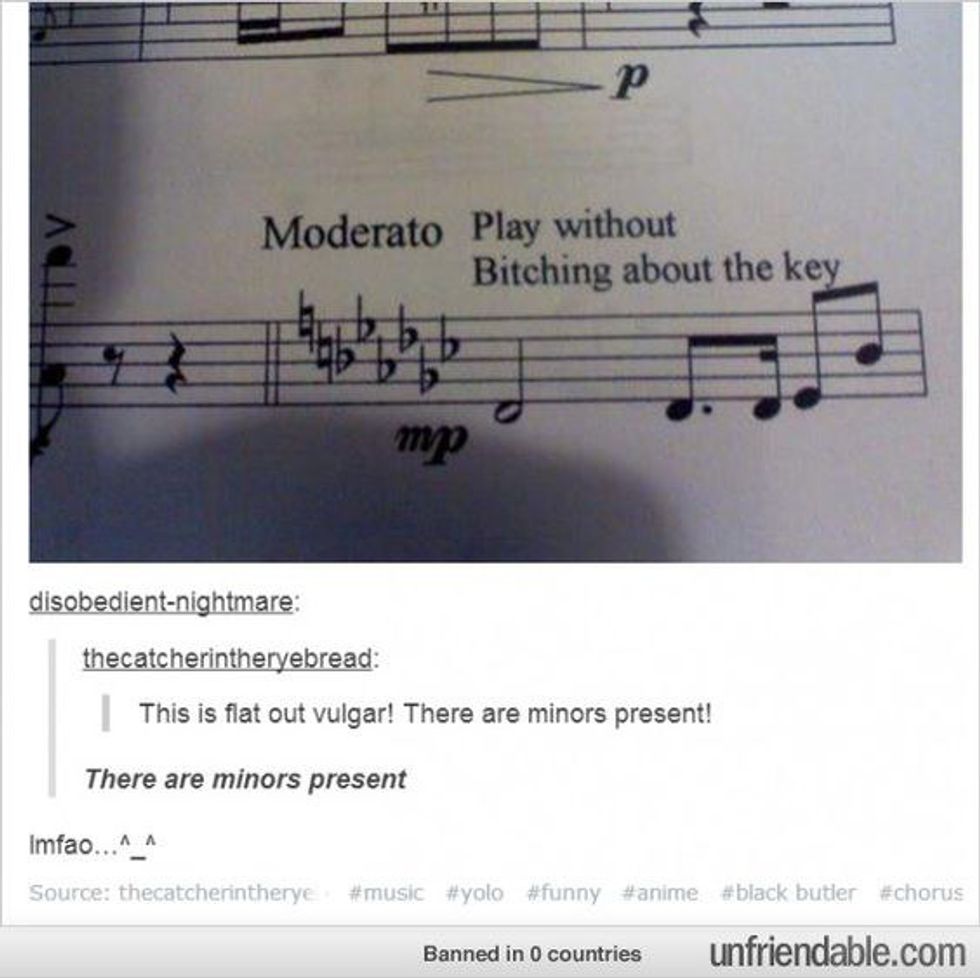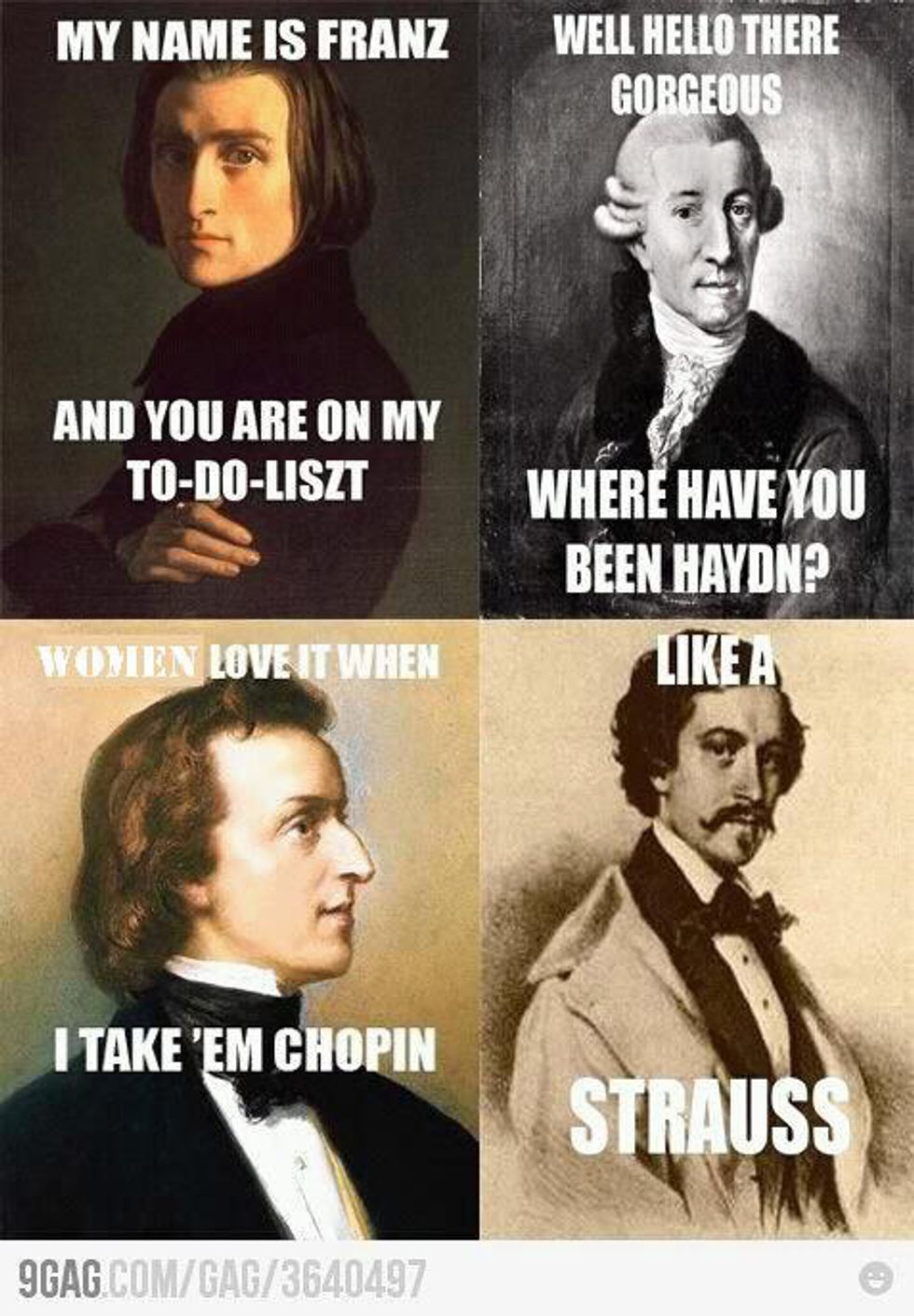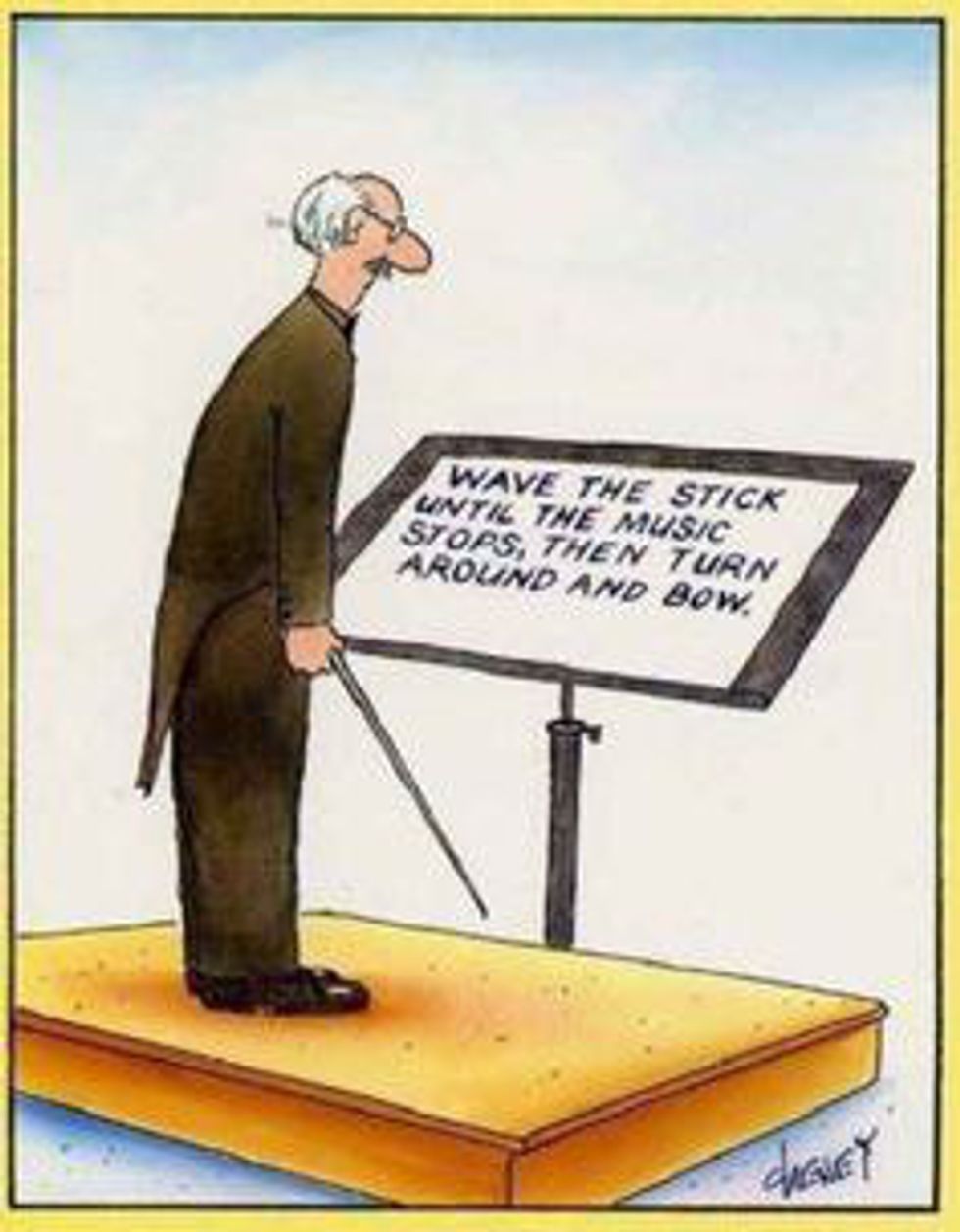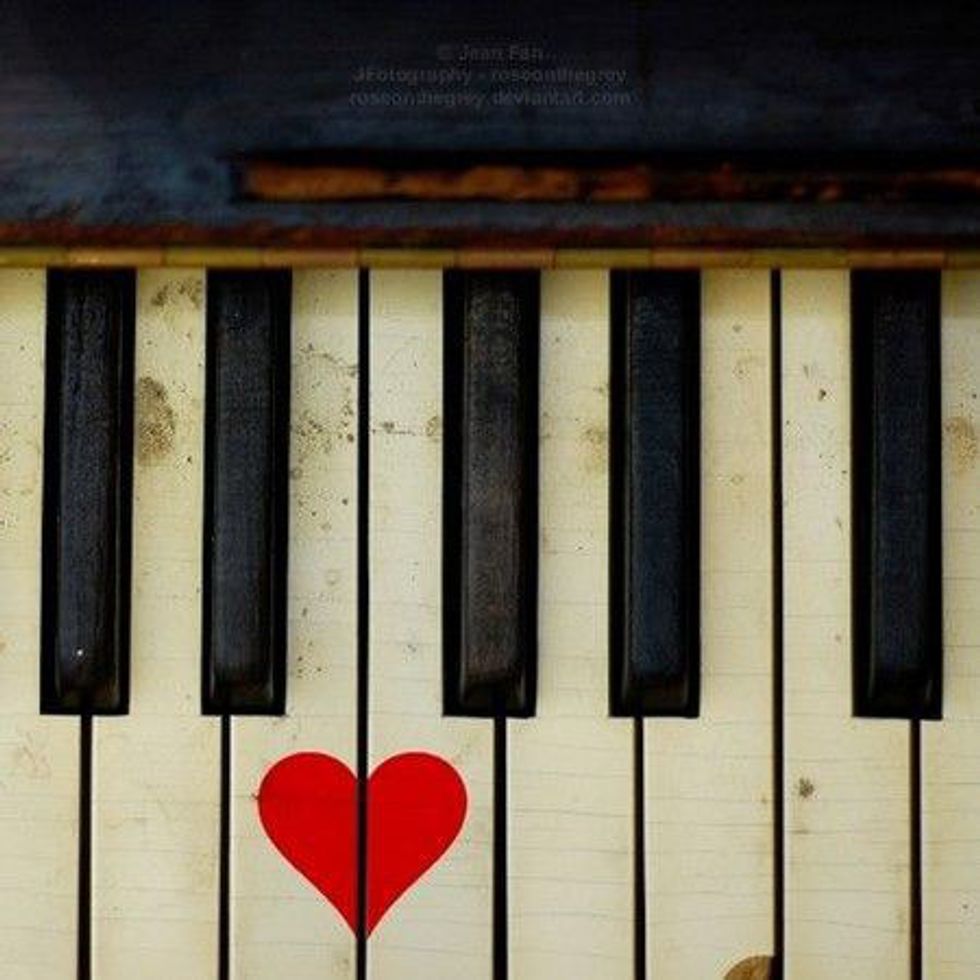We’ve read these kinds of articles before. It’s always something about practicing non-stop, all day, every day. But what about the music majors who aren’t majoring in an instrument? What about those of us majoring in theory, composition, or history? For those who only have to take ensemble as an elective for two semesters, this list is for you.
1. You acquire many musical novelties.
My personal favorite is my baby grand pencil sharpener. The keys move, so you can actually play it.
2. You're convinced Roman Numeral Analysis was invented by Lucifer.
It was all fine until the professor introduced augmented sixth chords and John Cage.
3. No matter how many times you draw it, your treble clef will never come out looking perfect.
Constantly praising Jesus for the creation of Finale and Sibelius.
4. You're tired of people assuming you're good at math.
The highest I've ever counted is sixteen. I only know how to multiply and divide by two, four and three.
5. After taking an opera class, you hear opera music everywhere.
"Yup. That's 'Flight of the Valkyries' in a Burger King commercial again."
6. You cringe when people call Bach “Classical."
He’s Baroque, people! Get it right.
7. You gain an appreciation for multiple genres.
As music majors, we are exposed to music from all over the world, and from every century. Because of all this exposure, we don't discriminate against anything. Musicals are just as good as operas, and are just as significant as three-movement piano concertos and symphonies.
8. You know more musical jokes and puns than any comedian.
You just can't Handel them all.
9. Your favorite composer is your bae.
Once you start to appreciate their music, you can distinguish it from anything else. Eventually, you'll be thinking to yourself: "that's so Tchaikovsky."
10. You hold tight to your music snob beliefs.
No matter what society says, sharps will never be hashtags.
11. Your career choices are vast, even if you're the only person that knows it.
No. We don't all become music teachers.
12. You’ve learned not to glare at people who say, “Music is my life."
When you first hear the phrase, your initial reaction is to cringe, because how could a person who listens to Spotify for an hour a day possibly be anywhere near your level? You want to scream at them, “try being a music major and practicing for three hours a day while taking five one-credit courses that should be worth four each.” However, over your years of musical study, you’ve learned an important lesson: music can speak to people. It can save them. It can help them escape from the daily struggles of anxiety, depression, and numerous other mental illnesses (music therapy majors know this quite well). Music speaks to our souls. So, music may be their life, because it saved them, but the same goes for us as well. Music is our lives. It is our entire existence. Isn’t that why we became music majors in the first place?




